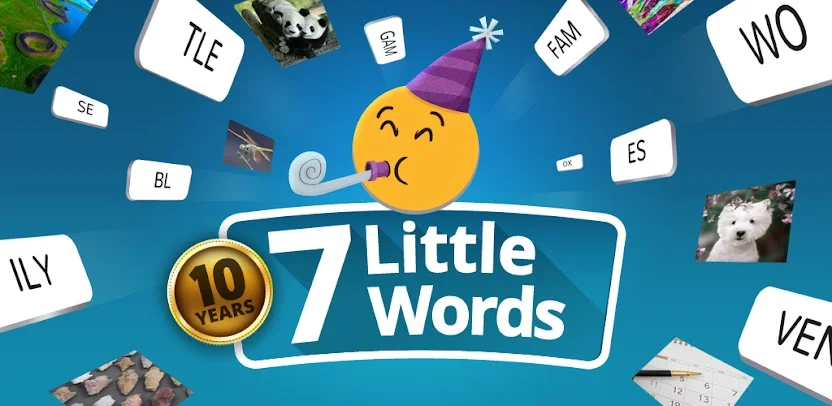In the world of word puzzles, “Drudgery 7 Little Words” is a popular term that has intrigued many puzzle enthusiasts. This type of puzzle, found in games like “7 Little Words,” challenges players to figure out the correct seven-letter word based on a set of clues. For those unfamiliar with the game or puzzle style, this article aims to break down what “drudgery 7 little words” means, how to solve it, and provide tips for puzzle-solving success.
What is Drudgery 7 Little Words?
“Drudgery 7 Little Words” refers to a clue in the puzzle game “7 Little Words.” In this game, players are given a series of clues, each pointing to a seven-letter word. The objective is to use the clues to piece together the correct word by selecting letters from a bank of available options. The game features a variety of clues, ranging from simple to complex, and requires a bit of word knowledge and logic to solve.
The specific puzzle clue “drudgery” is often associated with something that feels like repetitive or monotonous work, typically involving hard, tedious labor. The seven-letter word related to this clue is likely a term used to describe such laborious or tiresome work.
Also Read: Silly Wankok: Exploring the Meaning and Origins of This Fun Term
The Meaning of “Drudgery”
Before delving into how to solve the puzzle, it’s important to understand the meaning of the word “drudgery.” Drudgery refers to hard, menial, or repetitive work that feels burdensome and tiresome. It’s the kind of task that people often dread, as it lacks excitement and seems endless. Some common examples of drudgery include manual labor, cleaning, or tasks that require little mental effort but are physically exhausting.
In the context of the game, the word you are trying to uncover would likely reflect this sense of monotonous and laborious work.
How to Solve “Drudgery 7 Little Words”
To solve the “drudgery 7 little words” puzzle, players must combine the given clues with their knowledge of common seven-letter words related to repetitive tasks. Here are some general strategies to follow when solving this type of puzzle:
- Understand the Clue: The first step is to thoroughly read the clue. “Drudgery” may refer to various types of exhausting work, so consider synonyms or words that describe such activities.
- Brainstorm Possible Words: Think of words that are seven letters long and might fit the meaning of “drudgery.” Words like “toil,” “labor,” or “grind” might come to mind, but remember, you need a seven-letter word.
- Use Available Letters: In most “7 Little Words” puzzles, you’ll have a set of letters that must be used to form the answer. Pay attention to these available letters to see if any of them fit the clues or make sense with the word length requirement.
- Trial and Error: Sometimes, trying different combinations of letters will help you arrive at the correct solution. Start by testing out common letter pairings and gradually refining your options until the puzzle is solved.
- Check for Synonyms: Often, the key to solving a “drudgery 7 little words” puzzle is to think about synonyms. Words that relate to the concept of repetitive, tiresome work are prime candidates for the solution.
Common 7-Letter Words Related to Drudgery
There are several seven-letter words related to the concept of drudgery. Some possible solutions to the “drudgery 7 little words” puzzle include:
- Toiling: Refers to hard, continuous labor or effort, often associated with work that feels tiresome or endless.
- Grinding: This word denotes repetitive, monotonous work that often requires a lot of physical or mental effort.
- Laboring: This is another term for working hard, often associated with physical work or tasks that require great exertion.
- Sweating: Though typically associated with physical exertion, “sweating” can be used metaphorically to describe hard, tiring work.
- Slaving: Often used to describe work that is physically demanding and mentally exhausting, similar to drudgery.
Why Drudgery is a Common Puzzle Clue
The use of the word “drudgery” as a clue in “7 Little Words” is not arbitrary. It fits well within the puzzle format because it evokes a clear, recognizable concept — that of hard, repetitive work. Puzzle creators often use everyday terms or well-known synonyms to create clues that challenge players to recall specific vocabulary.
By focusing on words associated with toil, labor, and repetitive effort, puzzle creators give players a clear but slightly tricky challenge. While “drudgery” may not be a word players encounter every day, it is a recognizable concept that many can relate to, whether in the workplace, school, or home.
Frequently Asked Questions About “Drudgery 7 Little Words”
1. What does the clue “drudgery” mean in 7 Little Words?
In the context of the puzzle, “drudgery” refers to repetitive, exhausting work that feels tedious and unfulfilling. The seven-letter word you are looking for is likely a synonym or term that embodies these characteristics.
2. How can I improve my chances of solving “drudgery 7 Little Words”?
Practice is key. Familiarizing yourself with common seven-letter words and their meanings will help. Additionally, thinking of words that relate to laborious or tiresome activities is essential when tackling a clue like “drudgery.”
3. Can I use a cheat or hint feature to solve the puzzle?
Yes, many word puzzle games, including “7 Little Words,” offer hint features that can help you solve difficult clues. While hints may cost points or require watching an advertisement, they can be a useful tool if you’re stuck on a tough clue like “drudgery.”
4. Are there other games that feature “drudgery 7 Little Words”?
While “7 Little Words” is one of the most popular games with this style of puzzle, other word-based puzzle games may also feature similar clues or challenges. Some puzzles may use synonyms of “drudgery” to test players’ vocabulary and problem-solving skills.
5. What strategies should I use for solving any 7-letter puzzle?
To solve any “7 Little Words” puzzle, break the clue down by considering synonyms, related words, and the available letters. Don’t be afraid to use trial and error, and remember that puzzles like this are designed to challenge your vocabulary and problem-solving abilities.
Conclusion
“Drudgery 7 Little Words” is an example of the many intriguing challenges you can encounter in word puzzle games. By understanding the meaning of “drudgery” and applying logical strategies, you can increase your chances of solving the puzzle. With practice, you’ll be able to recognize the clues and discover the correct answers more quickly. Whether you’re an avid fan of the game or new to word puzzles, solving “drudgery” related clues will help sharpen your puzzle-solving skills and expand your vocabulary. Happy puzzling!

